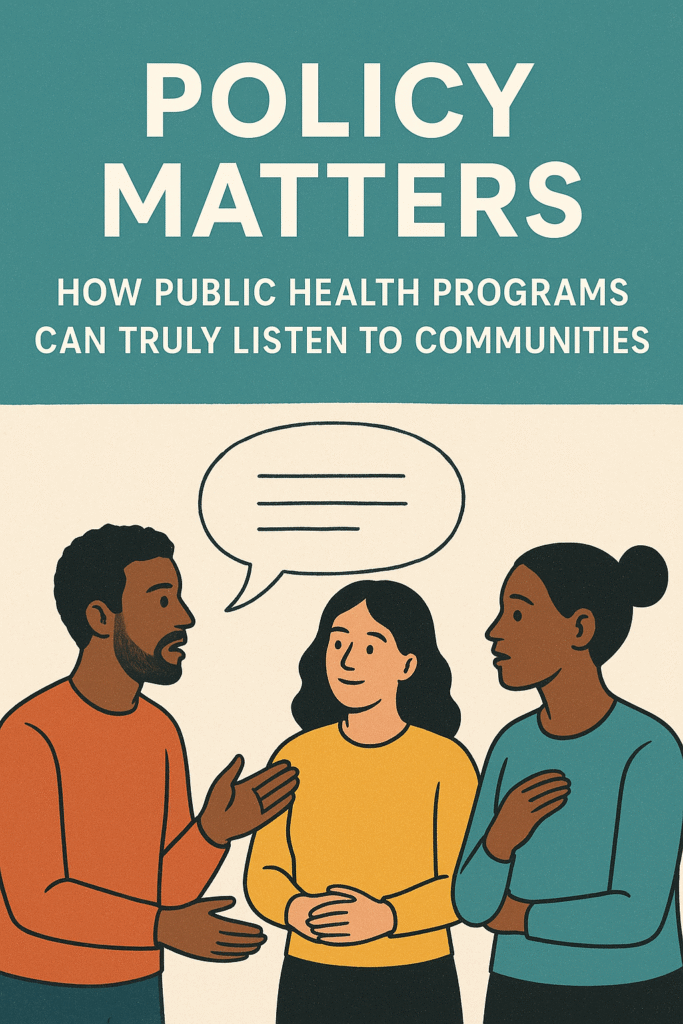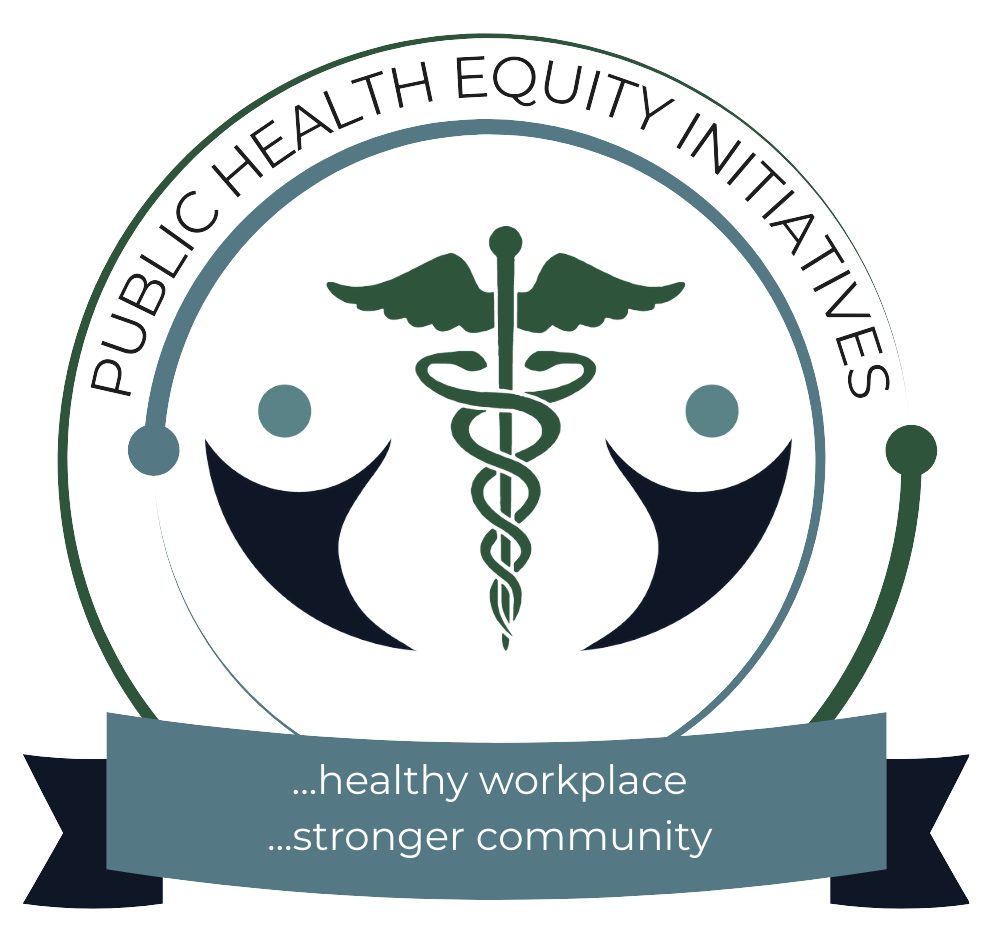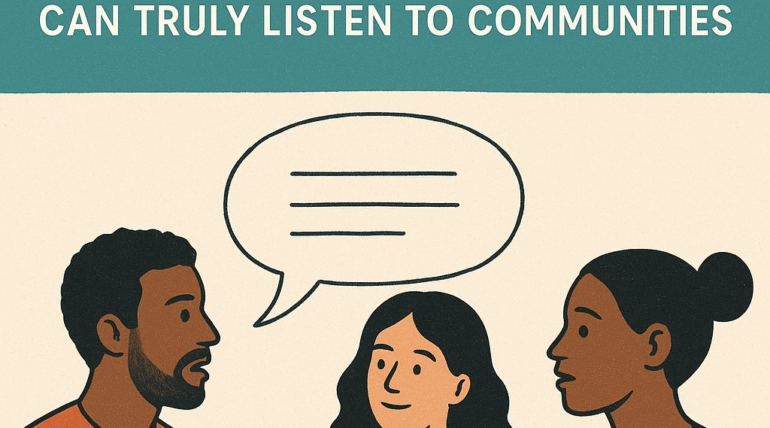In many communities across Nigeria, public health initiatives are well-intentioned but often miss the mark. Programs are designed, budgets are allocated, and campaigns are launched, but if the voices of the people they aim to serve aren’t heard, the impact is limited.
At PHEI, we’ve seen firsthand that listening to communities isn’t just a nicety; it’s essential for equitable health outcomes. “And by listening to communities, we mean going beyond surface-level consultation: engaging directly with local leaders, volunteers, small business owners, and everyday residents; understanding their challenges, priorities, and solutions; and incorporating their voices into the design, implementation, and evaluation of health programs.”
Frontline Lessons: Voices Too Often Overlooked
Take, for example, a vaccination campaign in a semi-urban neighbourhood outside Abuja. The program aimed to increase immunisation rates among children, but early visits showed low turnout. Why?
Timing Conflicts: Many parents couldn’t attend during official hours because they worked long shifts in markets or informal jobs.
Distrust in Previous Programs: Some families didn’t trust the messaging, having experienced prior campaigns where promised follow-ups never happened.
Communication Barriers: Language and cultural differences made communication difficult.
By engaging directly with parents, local leaders, and youth representatives, program coordinators discovered simple, actionable adjustments: offering vaccinations on weekends, partnering with trusted local health workers, and using local dialects in communication. Within a few weeks, participation significantly improved.
This is a prime example of how policy that ignores lived realities fails, and how small adjustments informed by community input can dramatically improve outcomes.
Supporting Evidence
Several studies have highlighted the importance of community engagement in improving vaccination uptake in Nigeria:
Community Engagement for HPV Vaccination in Nigeria: This study emphasises that community engagement is crucial for building trust in vaccination services, increasing vaccine awareness, and ultimately driving vaccine uptake. Read more here
Community Engagement in Promoting Malaria Vaccine Uptake: A recent study utilised bivariate analysis and random forest analysis to identify important factors influencing community participation in malaria vaccine promotion. The findings highlighted the perception of vaccine effectiveness, educational level, and age as the most relevant factors influencing community engagement. Read the study.
Community Engagement to Support COVID-19 Vaccine Uptake: This research underscores that community engagement is an integral strategy within immunisation campaigns and has been shown to improve vaccine acceptance. Access the article.
These studies reinforce the notion that when health programs are co-designed with communities, they are more likely to be accepted and effective.
Why Community Engagement Matters
Programs Designed With, Not For Communities
Policies crafted without community insight often impose unrealistic requirements or overlook local solutions. Co-designing interventions ensures they are relevant, culturally sensitive, and achievable.
Trust is Critical
Communities are more likely to engage with initiatives that demonstrate respect, transparency, and consistency. Trust grows when policy actors show they are listening, not just enforcing.
Sustainability Depends on Local Ownership
Health programs succeed when communities feel ownership, from contributing ideas to leading small interventions themselves. This creates resilience beyond the life of a program or external funding.
Stories That Inspire
1. Market Traders and Peer-Led Health Information Networks
In Lagos, market traders have been involved in health-related initiatives, such as the establishment of health information platforms aimed at improving the well-being of traders. For instance, the Lagos State Health Management Agency has collaborated with organisations like the PharmAccess Foundation to implement health information platforms in markets, enhancing access to healthcare services for traders. (ng.boell.org)
Additionally, a study titled “A community action network-based intervention for improving knowledge of zoonoses among wildlife hunters and traders in Epe, Lagos, Nigeria” highlights the effectiveness of community action networks in disseminating health information among traders in Lagos State. (PLOS)
2. Youth Volunteers Utilising Social Media and Community Radio
Youth volunteers in Nigeria have leveraged social media and community radio to disseminate health information. A study titled “Youth and the pandemic: health information imaginaries” explores how young adults navigated pandemic-related information, drawing from social cognitive theory, and emphasises the role of youth in health communication. (Frontiers)
Furthermore, community radio stations, such as Lavun Community Radio in Niger State, have served as platforms for amplifying local voices and disseminating health information. By 2022, Lavun Community Radio had an audience of 2.2 million listeners, demonstrating the reach and impact of community radio in health communication. (namip.mdif.org)
These examples underscore the importance of community engagement in health initiatives and the effectiveness of leveraging local networks and media to disseminate health information.
PHEI’s Role: Bridging the Gap
At Public Health Equity Initiatives (PHEI), we are committed to bringing community voices to the heart of public health programming. Ahead of our official public launch on 15th September 2025, we are starting to reach out to communities, SMEs, and local organisations to listen, learn, and co-create health solutions that truly work.
We aim to:
Facilitate dialogue between policymakers and communities, ensuring programs reflect real needs.
Provide evidence-based insights to guide inclusive, practical interventions.
Support SMEs and grassroots organisations in implementing sustainable health strategies.
Our launch isn’t just about a new platform it’s about starting a movement where communities, policymakers, and health practitioners collaborate to make equity real.
Join the Conversation
As we gear up for our official launch, here’s how you can get involved:
Share your experiences with public health programs in your community.
Follow our blog for upcoming stories, research, and practical guidance.
Participate in our events and webinars to co-create solutions.
Collaborate with PHEI if you are an SME, NGO, or community leader looking to strengthen health outcomes locally.
Together, we can ensure that health policy listens, learns, and acts, not only for efficiency but for fairness and impact.
PHEI is coming, and we invite you to join us on this journey. Our goal is simple: equitable, practical, community-centered health for all. Stay tuned as we launch officially on 15th September 2025. The conversation is just beginning, and your voice matters.









